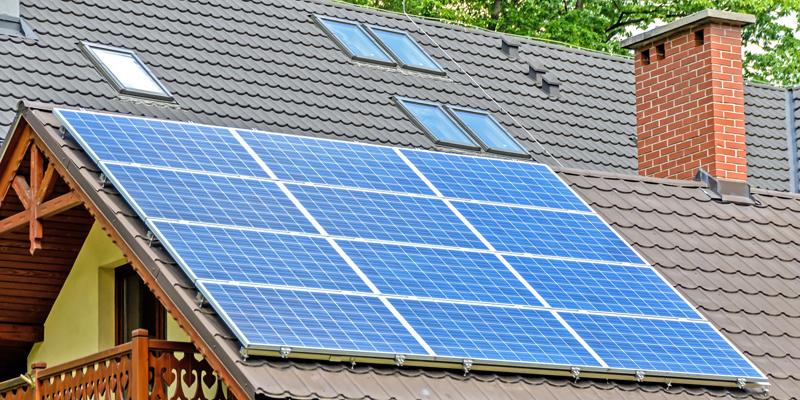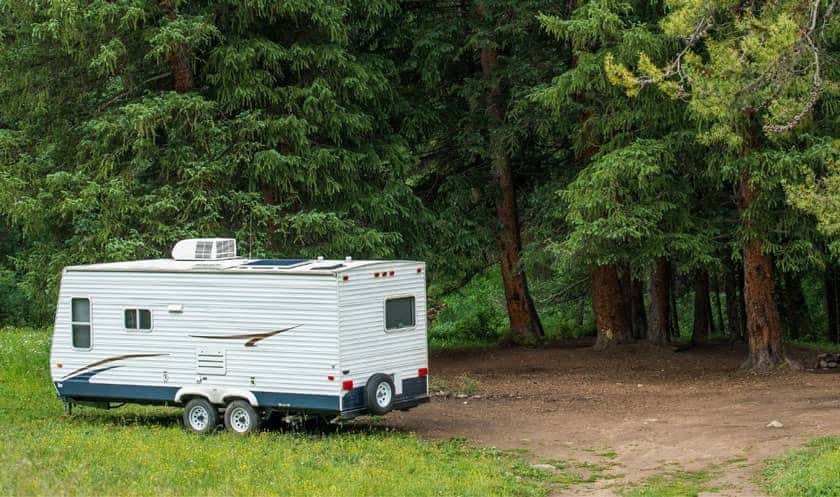Off Grid Solar Batteries: What Type’s Best?

Are you wanting to use solar power off grid? If so, you’re going to need off grid solar batteries–and they’d better be reliable.
If you use a grid-tied or hybrid system, it’s possible to run your solar without batteries. But as soon as you go off the grid, batteries become an essential part of your setup. Without them, you can’t store solar energy for use at a later time. You know, times when the sun’s not shining.
And what if you invest in solar batteries, only for them to malfunction, or run out of energy earlier than expected? Well, if the skies are dark, unfortunately your house or RV will be too.
So save yourself the trouble. Keep reading to discover the pros and cons of each battery type so you can choose the best one!
Off Grid Solar Batteries Aren’t Just for Camping
Years ago, solar batteries had their habitat in remote campsites and mountaintop cabins. Today, they’re still essential for boondocking and dry camping but with “grid defection” on trend, solar setups are making their way towards many towns and cities.
People are going off grid in places where grid power is available. They’re building eco-friendly tiny houses that completely rely on solar power. Others are installing solar panels on rooftops as backup power in places where the grid’s frequently unreliable. Some are saving big money by using solar only, and relying on the grid as a backup.
So now, more than ever, off grid solar batteries need to be reliable, long-lasting, and efficient. But not all batteries are created equal. Below, we’ll discuss the different types of off grid solar batteries so you can decide which is best for you.

What Are the Best Solar Batteries?
There’s no denying that lead acid batteries have been used in off grid solar setups for a long time. They’re the “OG” (original) batteries, and in the early days of solar energy, you wouldn’t see a setup without them.
But technology has evolved since then. So while lead acid batteries still get the job done, we wouldn’t say they’re the best off grid solar batteries on the market. They may be the most affordable up–front, but their benefits don’t go far beyond that.
Now each battery type has its pros and cons. Let’s compare the top contenders for off grid solar batteries, specifically lead acid, AGM, sealed gel, and lithium. These are the four most popular solar batteries available today and that’s why each is worth discussing. So let’s get to it!
Lead Acid Batteries
Lead acid batteries have been around for over 150 years. Most folks who use them as off grid solar batteries do so because of their low up-front cost.
Pros
- Low cost
- Good for short-term backup solar power
Cons
- Short lifespan (3-5 years). Can be shorter if overcharged or not maintained correctly.
- Require maintenance (watering, cleaning).
- Contain toxins that may harm the environment.
- Aren’t leak-proof and must be stored in a ventilated area.
- Not ideal for remote off-grid sites that aren’t visited frequently, because of maintenance needs.
- Usable capacity is 50%.
Sealed Gel Cell Batteries
Sealed gel cell batteries have electrolytes stored in gel form. This prevents them from spilling. They are similar to AGM batteries.
Pros
- Can tolerate long periods without being charged.
- Low self-discharge rate.
- Longer cycle life than AGM batteries.
- Maintenance free.
Cons
- Medium-high cost.
- Not suitable for constant use in remote places (where replacement is difficult).
- Charges slowly.
- Short lifespan (2-5 years).
- Limited ability to deliver peak power.
- 50% usable capacity.
AGM Off Grid Solar Batteries
AGM stands for absorbed glass mat. These are similar to gel cell batteries and are sealed.
Pros
- Low maintenance
- Good for intermittent use, such as in a vacation cabin
- Performs better than gel batteries when delivering peak power
- Spill-proof, will not leak
- Low self-discharge rate
Cons
- Medium to high cost
- Not suitable for constant use in remote places (where replacement is difficult).
- Susceptible to overcharging.
- Short lifespan( 4-6 years). May be shorter if overcharged.
- 50% usable capacity.
Lithium Off Grid Solar Batteries
LiFePO4 lithium batteries are the newest off grid solar battery type. They’re currently the most reliable battery on the market for solar setups. Here’s why:
Pros
- Longest lifetime of any battery type.
- Protected from overcharging or undercharging.
- Eco-friendly, toxin-free, and will not leak.
- Maintenance-free.
- Lowest lifetime cost of any battery type.
- Fastest charging battery type.
- Great for both long-term, short-term, and intermittent use
- Does not need to be replaced often; good for remote locations.
- Most energy-efficient of all battery types.
- Usable capacity is 80-100%, the most of any battery type.
- Best battery for hot and cold climates.
Cons
- Higher up-front cost
Which Solar Batteries Should You Choose?
Everyone’s energy needs are different. Lead acid or gel type batteries may work if you’re looking to test a solar setup short-term to see if it’s a right fit for you.
But when you consider efficiency, reliability and lifetime cost, it’s clear that lithium comes out on top as the best contender among all off grid solar batteries. So don’t let the slightly steeper up-front cost rain on your parade! Keep things sunny (and your electricity running smoothly) by powering your setup with lithium.



